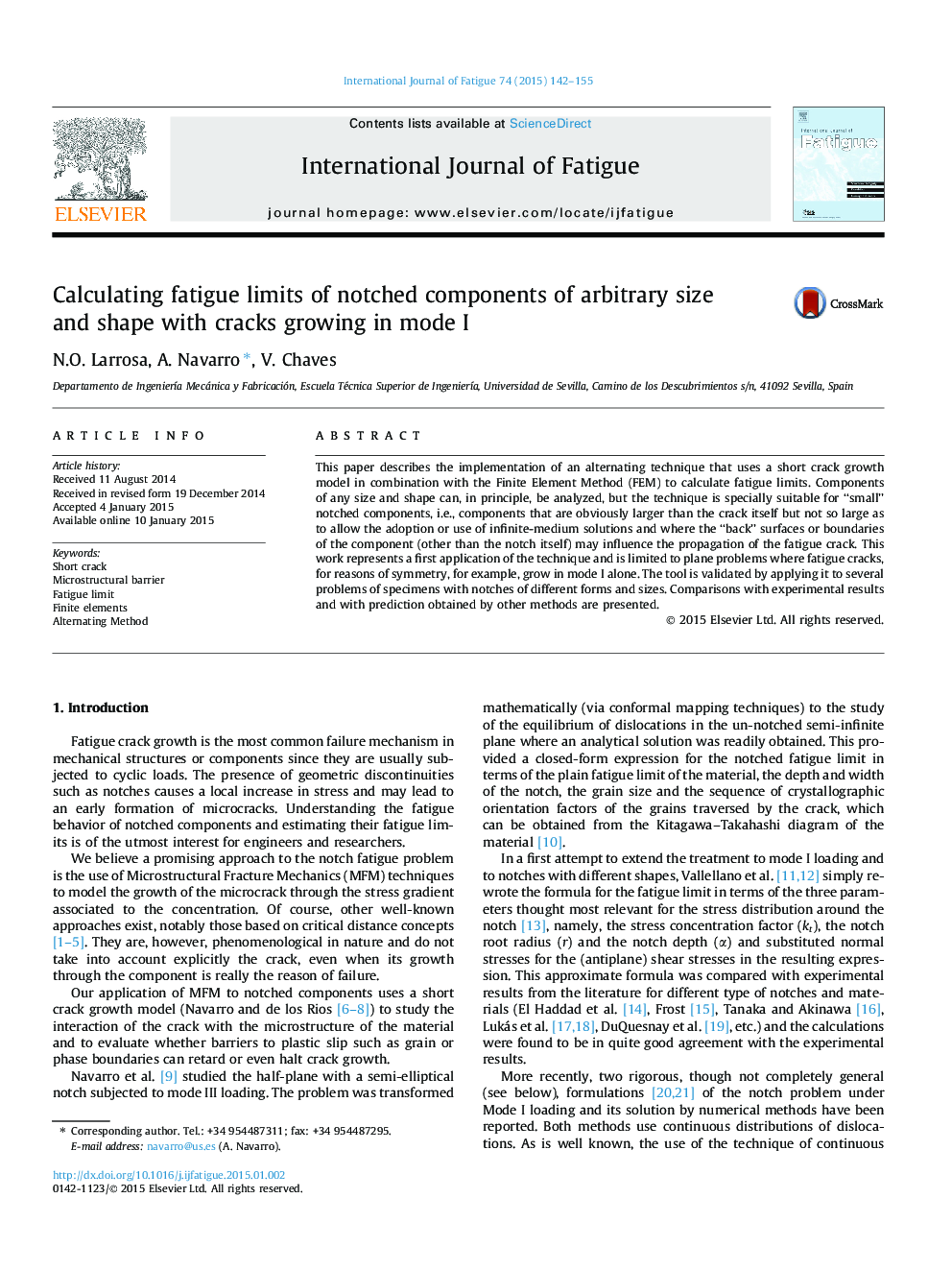| کد مقاله | کد نشریه | سال انتشار | مقاله انگلیسی | نسخه تمام متن |
|---|---|---|---|---|
| 776669 | 1463758 | 2015 | 14 صفحه PDF | دانلود رایگان |

• Combines short crack model with Finite Element Method to calculate fatigue limits.
• Components of any size and shape can, in principle, be analyzed.
• Specially suitable for small notched components, accounting for back surface effects.
• Does not need the equilibrium equations of dislocations for the particular geometry.
This paper describes the implementation of an alternating technique that uses a short crack growth model in combination with the Finite Element Method (FEM) to calculate fatigue limits. Components of any size and shape can, in principle, be analyzed, but the technique is specially suitable for “small” notched components, i.e., components that are obviously larger than the crack itself but not so large as to allow the adoption or use of infinite-medium solutions and where the “back” surfaces or boundaries of the component (other than the notch itself) may influence the propagation of the fatigue crack. This work represents a first application of the technique and is limited to plane problems where fatigue cracks, for reasons of symmetry, for example, grow in mode I alone. The tool is validated by applying it to several problems of specimens with notches of different forms and sizes. Comparisons with experimental results and with prediction obtained by other methods are presented.
Journal: International Journal of Fatigue - Volume 74, May 2015, Pages 142–155